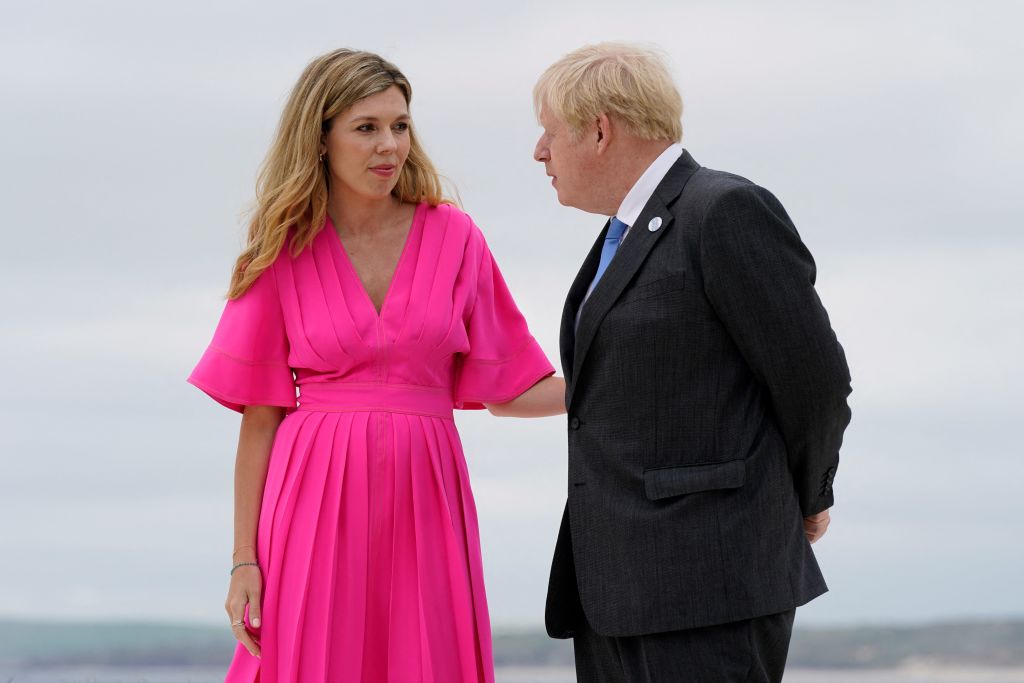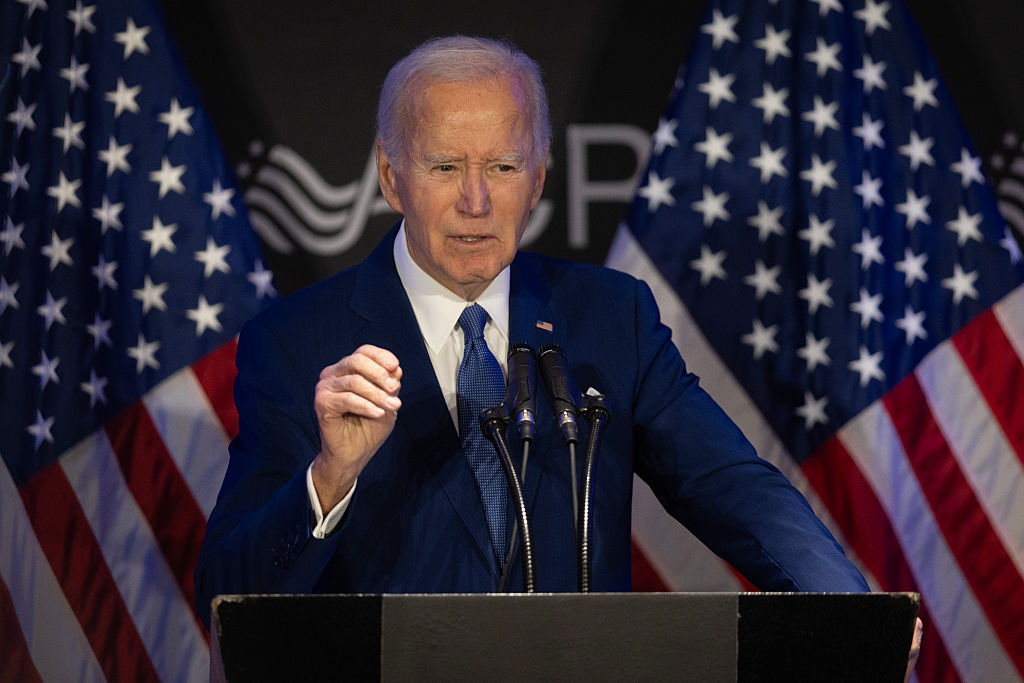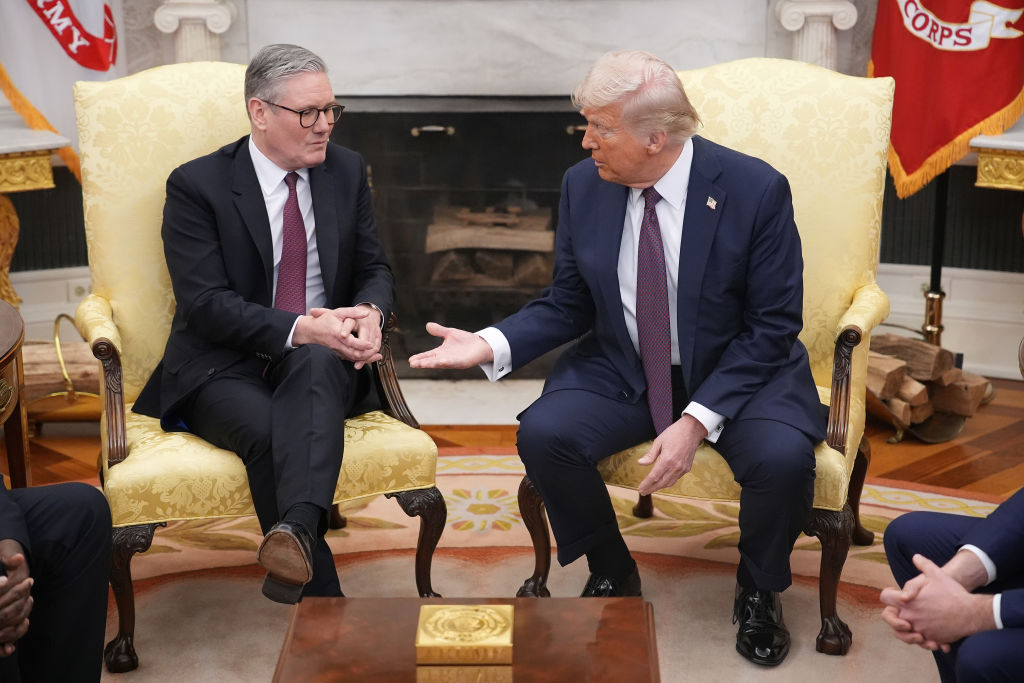Turn on any television news broadcast and peruse any news stand in Europe on the eve of the G7 summit, and what was the favorite picture? Carrie and Jill take a barefoot walk along the Cornish sand beside the blue Cornish sea, and enjoy a frolic with little Wilfred (just past his first birthday).
Ahhhh. Isn’t that lovely, so natural, so normal, you say. Melania (snarl) would never have done that. Oh, and by the way, Jill’s jacket said ‘Love’ on the back, contrast with Melania’s during a visit to a migrant detention center, which said (if you have already forgotten) ‘I really don’t care, do U?’
Well, you might care. Then again — like me — you might not. And in a moment I will explain why. But first it is worth adding that there was a runner-up for favorite photo — chosen to lead the front page by, among others, the Financial Times.
We were back on the beach, but this time with the two ‘first couples’, Joe and Jill Biden, Boris and Carrie Johnson, getting along just splendidly. ‘Oh, baby, what a love-in!’ exclaimed the Daily Mail (with an inset picture of Carrie and Wilfred to drive the point home).
Both these images perpetuate and reinforce the stereotype of working man, supportive woman and happily (married) couples from the 1950s. Which is why I don’t care, or at least why I question their purpose.
You can understand media editors who long to avoid the perennial ‘men in suits’ and seize on anything that might suggest color and positivity in these otherwise grim times. But, for Heaven’s sake, what year are we in? There are Mr and Mrs Biden, Mr and Mrs Johnson strolling hand in hand along the beach. They have been joined for the G7 weekend by another five married couples — all of whom use their married names, bar one. The exceptions is Angela Merkel (who uses the name of her first husband, so not Mrs Merkel, please, but Ms) and Dr Joachim Sauer — her husband, an academic scientist who mostly shuns the limelight.
What this suggests is that, for all the social liberalism spread around in the last 50 years or so — and for all the considerable efforts, including in the UK diplomatic service — to accept that individuals and families come in different shapes, sizes and orientations, the icon has barely changed since the 1950s.
Over in the UK, we might have been through Swinging London and Cool Britannia and now be entering Global Britain. But the standard is a man in a suit, and a women with a ring on her finger who takes her husband’s name — and whose job, if her husband happens to be national leader, is to play the gracious hostess.
Let me clarify. I have nothing against women — or men, for that matter — taking their spouse’s last name. I did, when I married in the 1970s, and have used it professionally ever since. What amazes me rather is how quickly the traditional norms snap back into place.
This time last year, the UK had a prime minister who was the first to live with his partner, unmarried, at No 10, and then to have a child with her, as is quaintly said, out of wedlock.
This year, we see Mr and Mrs Johnson and their baby entertaining world leaders, with Mrs Johnson deputed to lead the ‘spouse program’ that has become obligatory at such jamborees.
I pass over the paucity of women leaders. We know that. Next year, without Angela Merkel, the G7 could be back to an all-male membership, unless Germany’s Greens spring a surprise. And I am sure that were one of the G7 leaders to be part of a less traditional family, his, her or their arrangements would be catered for. To that extent things have changed.
But a bigger — perhaps the bigger — question should be why it is still expected that national leaders turn up for an event like the annual G7 summit with a partner, why partners are invited at all, and why — given that they are — that the host country deputes the first lady, or equivalent, to entertain them?
Surely someone who has stood for national office — as all G7 leaders have done — could just about navigate the couple of days demanded by this sort of summit solo? Meetings might even be concentrated into one day, if the entertaining were curbed and the whole shebang were treated more like the business meeting it should be than the mega-national promotion it has become.
Oh, but the getting-to-know-you and the ‘networking’, you object, aren’t they part of the point of such gatherings? To which my answer would be ‘No’. Of course, a lot has been lost during the pandemic with the replacement of direct personal contact by Zoom. But partners (still less babies) are not in the room for discussions and decisions, or at least they shouldn’t be, and couples talking — or wishing they were talking — to each other at social events can be more of a hindrance than a help to getting to know other people.
With Germany next in line to chair the G7, if it still exists, Angela Merkel’s successor as chancellor has a chance to make a new start. He or she should honor Joachim Sauer in his reluctance to play the consort and respectfully invite spouses, partners and the rest to stay at home.
This article was originally published on The Spectator’s UK website.

























